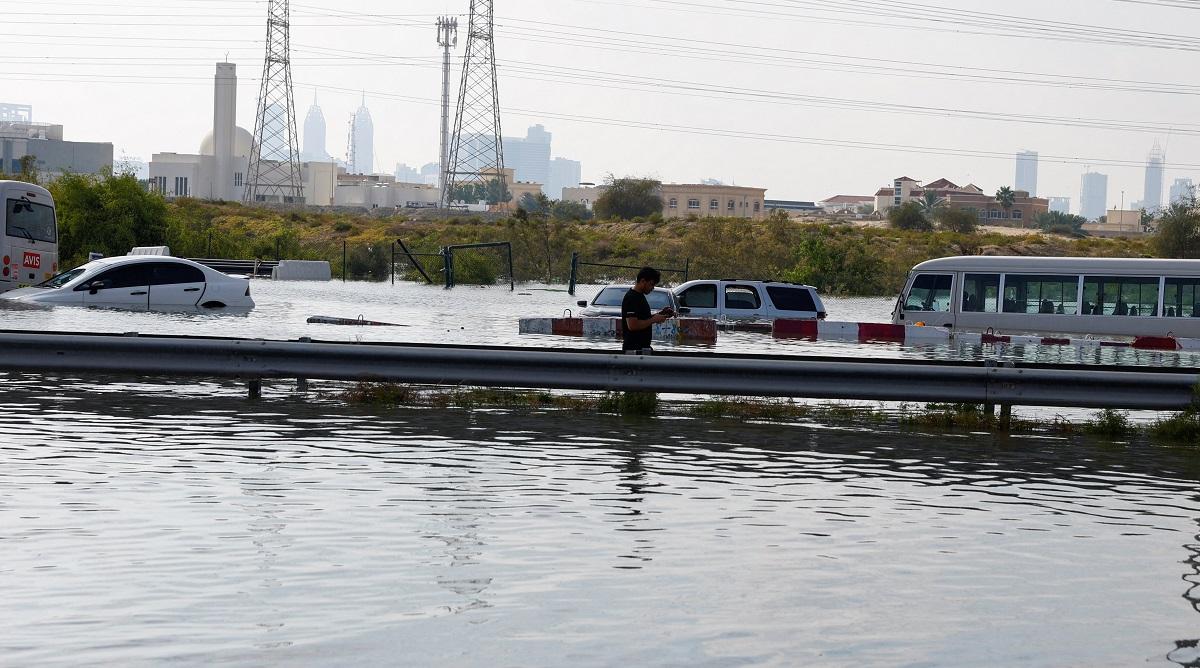Is climate change to blame for the deadly Dubai flooding?

The rainfall that caused at least 20 deaths in Oman and four in Dubai last week was made 10-40% more intense by climate change, according to a rapid study by a group of international climate scientists from the World Weather Attribution Group (WWA).
Rains usually occur in the Arabian Peninsula during March and April, often short, infrequent, and intense, so the rainfall itself was normal. But according to the WWA, last week's deluge was made stronger by climate change, which is caused by burning fossil fuels and deforestation.
“Extreme rainfall events have become at least 10% heavier in the UAE and Oman. This finding is not surprising and agrees with the basic physics that a warmer atmosphere can hold more moisture," Mariam Zachariah, researcher at the Grantham Institute- Climate Change and the Environment, of Imperial College London, said in a statement.
At the present 1.2C warming, "the atmosphere can hold about 8.4% more moisture" the statement added. The Paris Agreement of 2015 has set the warming limit between 1.5C and 2C.
Meanwhile, scientists at the WWA also looked at how El Niño could have influenced the extreme rainfall and their observations indicate "El Niño plays an important role in the likelihood of heavy rain episodes in this part of the world, as the heaviest rainfall events in the region all occurred during El Niño years," the press statement said.
While the scientists are careful not to attribute the extreme rainfall solely to climate change, they are certain "global warming is the most likely explanation."
Said, Friederike Otto, Senior Lecturer in Climate Science at the Grantham Institute - Climate Change and the Environment, Imperial College London, “Both El Niño and human-caused climate change appear to be influencing heavy rainfall in the UAE and Oman."
"While we can’t stop El Niño, we can stop climate change. The solution is to stop burning fossil fuels, to stop deforestation," she added.
“If the world keeps burning fossil fuels, rainfall in many regions of the world will get heavier and heavier, resulting in deadlier and more destructive floods," Otto said.
Regions of the Arabian Peninsula was hit by extreme rainfall last week, with Dubai receiving a year and a half's worth of rain in just 24 hours.
More than 80mm of rain fell on the United Arab Emirates — the most the UAE has seen since record-keeping began in 75 years. In Dubai, more than 14cm of rain fell in just 24 hours, that WWA said.
The rains killed four individuals in UAE, including three Filipino OFWs, and disrupted the Dubai International Airport. Among those who were stranded was Rhian Ramos.
— GMA Integrated News



